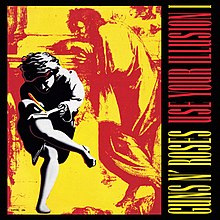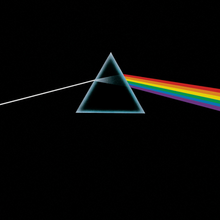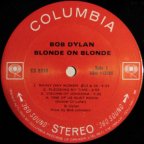

...continued from previous:
In September 1991 the new Gunner's album was released. In fact, it was not
one album, but
two. A double album? Ahh, no.
Two separate albums. Both of them titled
Use Your Illusion. 1 and 2, for good measure.
Herein lies the issue. These were apparently never designed to be a double album. But, the band created so much music that it felt it had to be released. To confuse the issue further, they were named the same, and had the same artwork on the cover, albeit colour shaded differently to highlight the difference. Another spanner in the works came from the fact that, while on CD both albums were single discs, on vinyl (the format this writer purchased them on) they were both two vinyl records each!
Steven Thomas Erlwhine, in the AllMusic Guide writes (rather accurately in this writer's opinion):
"The "difficult second album" is one of the perennial rock & roll clichés, but few second albums ever were as difficult as
Use Your Illusion. Not really conceived as a double album but impossible to separate as individual works,
Use Your Illusion is a shining example of a suddenly successful band getting it all wrong and letting its ambitions run wild."
And here's the funny thing. On the previous release, "
G'n'R Lies", singer Axl Rose had made a notorious name for himself as a homophobic xenophobe on the scurrilous song "One in a Million". And yet, his ambitions led him to think he could create music based on the grandeur of Queen or "Yellow Brick Road"-era Elton John. While there are moments here where the band sound as raw and as dangerous as The Clash, then on the next song they churn out an epic not unlike Elton's "Madman Across The Water". It was all conflicted, confused and contradictory. Clearly the band threw everything they had at this project and emerged with one hell of a mess.
The three songs that most people had heard prior to the release of the albums were all on
Use Your Illusion 11 , so although both records technically topped the charts simultaneously,
II sold more initially, and therefore was printed as the chart topper for the week. However
Use Your Illusion 1 stayed on the charts much much longer.
To say that the band got their ambitions mixed up with their capabilities is an understatement. However, this writer does not begrudge them of it. They tried hard, and while parts of it are now quite embarrassing, there is a lot of value in here. 30 songs in over 150 minutes is a lot to digest in one sitting, and with no less than 6 tracks clocking in at over 7 minutes, it can feel like tough going. But there's plenty of chunky guitar riffs, complex arrangements and, of course, great songs. Let's pick the highlights:
If you want to bang your head and mosh, try "Right Next Door To Hell", "Perfect Crime", "Garden of Eden", "Don't Damn Me", "Shotgun Blues", "Pretty Tied Up", "Locomotive" and "You Could Be Mine"
If you want introspection, play "Estranged", "Yesterdays", "14 Years", "Dead Horse",
If you want dark and moody, you want "The Garden", "So Fine", "Bad Obsession", "Double Talking Jive"
If you want tearjerkers, "Don't Cry (Original), "November Rain", "Knocking on Heaven's Door".
If you want epic, take "Coma", and "Civil War" for a start.
Use Your Illusion 1 starts off formidably with a thumping rocker. Indeed, the faster, heavier numbers are largely constrained to this album, with only two massive epics padding it out - the psychotic 10-minute "Coma" and the epic ballad "November Rain", which clocks out just shy of 9 minutes. Slash is all over these two albums with his heavy crunching riffs and wild solos, but his flamenco outro on "Double Talkin' Jive" rates a special mention.
The band get's even grander and stranger on
Use Your Illusion II. They overextends themselves on "Breakdown" - it's a muddy concept for a song that makes little sense and drags on for a full 7 minutes. Dylan's once subtle and humble meeting with the grim reaper "Knockin' on Heaven's Door" becomes a terrace chant (and not for the better, either). "Get In The Ring" is inexcusable, naming, shaming and threatening journalists because they wrote bad reviews or tabloid stories about the band. "Civil War" is confused - the song is about war in general, not a civil war as such. "Don't Cry" is a gorgeous song, in it's original form. Maybe they were running out of material by the end of side 4 of
Use Your Illusion II , because they included another version of the song with alternate lyrics - they really didn't need to.
To this day, this writer still doesn't know what the hell "My World" is all about. It feels like a concrete example of just how far Axl has disappeared up his own arsehole. Thank goodness it only lasts for 80 seconds.
The band milked this album for all it was worth, and then some. They toured behind it for almost two years, released and re-released singles from it until 1994 - all 10 of them. I still rate both these albums quite highly and I still enjoy them, but they are symptomatic of the excess of the era. If you really need a reason as to why we needed the Grunge explosion of 1992, look no further than
Use Your Illusion.
Enjoy.
















